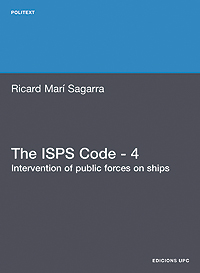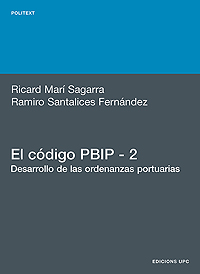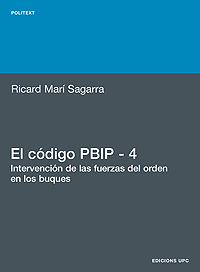
The application of the mandatory rules contained in Chapter XI-2 of the SOLAS Convention, known as the ISPS Code (adopted on the 12th of December 2002, in force since the 1st of July 2004), as well as of the Regulation of the European Parliament and of the Council (adopted on 31st of March 2004, in force since the 20th of May of the same year), towards the protection of the marine environment, constitutes a difficult challenge for those responsible for security. The main concern is the protection of the ship-port interface, and all procedures should be focused on creating a tight barrier to all past, present and future threats. This study offers a level of specialised knowledge on those subjects included in the security area, both regarding detection procedure methodologies for risks related to criminal human participation (identification of clues, signs, actions, behavioural patterns, responses to certain control stimuli, etc.) and from the ship standpoint as an independent, autonomous unit to control her integral safety. Contents are addressed taking into account the three main blocks that play a role in security: the ship, her types, structural design and transits; the port as a filter for the threats intending to reach the ship; and the individuals involved in both, besides the criminal elements causing the crisis. Ricard Marí is a Merchant Marine Captain since 1968. From 1964 to 1975 he worked as a seafarer, and from 1975 to 1987 he was the Safety and Emergency Task Manager in a petrochemical company. He holds a Ph. D. in Marine Science by the UPC (Polytechnic University of Catalonia) and is a lecturer in the Nautical School of the UPC. He has written over thirty technical publications applied to maritime activities on the subject of safety. Since 1997 he has prepared diverse studies in the field of ship and port security, based on a research project funded by the EUs Falcone programme.
Barcelona: Universitat Politècnica de Catalunya. Iniciativa Digital Politècnica, 2009 · Politext, 187
250 p. · 19 x 26 cm · · ISBN 978-84-9880-372-3 · 23 € · anglès
Matèria: Tecnologia, enginyeria, agricultura, processos industrials : Tecnologia, enginyeria i activitats de construcció naval

Els objectius que es persegueixen en introduir l'estudiant d'enginyeria aplicada a les indústries alimentàries en les assignatures més vinculades amb la tecnologia del proc...
(Universitat Politècnica de Catalunya. Iniciativa Digital Politècnica, 2005) · 302 pàg. · 12,49 €

Es crucial que los ingenieros, durante su período de formación o como profesionales, comprendan a fondo las amenazas ambientales que el mundo afronta y sepan si su actuació...
(Universitat Politècnica de Catalunya. Iniciativa Digital Politècnica, 2007) · 10,99 €

(Universitat Politècnica de Catalunya. Iniciativa Digital Politècnica, 2008) · 240 pàg. · 19,2 €

(Universitat Politècnica de Catalunya. Iniciativa Digital Politècnica, 2008) · 254 pàg. · 21,7 €
Universitat Abat Oliba CEU • Universitat d'Alacant • Universitat d'Andorra • Universitat Autònoma de Barcelona • Universitat de Barcelona • Universitat CEU Cardenal Herrera • Universitat de Girona • Universitat de les Illes Balears • Universitat Internacional de Catalunya • Universitat Jaume I • Universitat de Lleida • Universitat Miguel Hernández d'Elx • Universitat Oberta de Catalunya • Universitat de Perpinyà Via Domitia • Universitat Politècnica de Catalunya • Universitat Politècnica de València • Universitat Pompeu Fabra • Universitat Ramon Llull • Universitat Rovira i Virgili • Universitat de Sàsser • Universitat de València • Universitat de Vic - Universitat Central de Catalunya